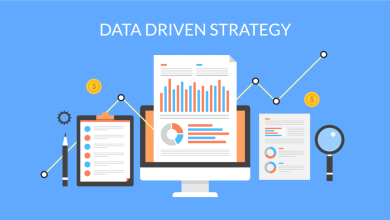
Hiring technical talent is a challenge for many organizations. Reading resumes is cumbersome and prone to bias. Finding qualified candidates is extremely difficult, and most recruiters don’t do a good job of being efficient. AI-driven tools like coding assessments are transforming recruitment and addressing these obstacles effectively.
How to Identify Qualified Candidates
Finding the right technical talent is one of the biggest challenges in hiring because there are so many applicants, and finding someone with the right skills can be challenging. Technical expertise is often not well presented on traditional resumes. They can blow up abilities or lack the specificity to evaluate programming competence. For example, a developer could put Python on their resume, but you need validation to understand their degree of expertise in the language. AI-powered coding assessment offers a practical solution. These tools evaluate candidates based on real-world programming tasks and ensure that the candidate’s skills fit the job. Unlike interviews or traditional tests, coding assessments simulate actual work scenarios, measuring problem-solving, code quality, and efficiency. These platforms enable recruiters to get rid of the guesswork of manual screening and focus on proven talent.
Additionally, AI tools save time in that they automate the first steps of evaluation. This makes it possible for recruiters to set benchmarks for performance and, using that, increase a shortlist of candidates who meet certain criteria. For instance, if a role needs expertise in Java, then the automated system can highlight the applicants who are good at Java-based challenges and only a little is left for recruiter evaluation. The result of this streamlined process is that only the most qualified people advance, meaning better hiring outcomes.

Reducing Bias in the Recruitment Process
Bias in hiring are ongoing problems that prevent diversity and fairness from progressing. Even unconsciously, it can influence decisions that are not related to a candidate’s abilities, like background, gender, or education. This is especially true in technical hiring, where opportunities should be given only to candidates based on their skills. However, AI driven recruitment tools solve this problem by focusing on objective data only. For instance, anonymized coding assessments allow candidates to showcase their skills without revealing personal details. In doing so, we eliminate any chance for bias during the first screen, where all candidates are judged solely on their performance.
In fact, AI can also process data to find patterns of bias in previous hiring decisions that can enable an organization to refine its process. For example, if a company is seeing an imbalance in its gender diversity in software development roles from its hiring trends, AI can suggest ways to make it more inclusive. But it’s important to do so responsibly. We must engineer algorithms so as not to duplicate those prejudices. Fairness must come from regular audits of the tools used and data inputs. When done right, AI dries, makes the recruitment process more inclusive, and benefits employers and candidates alike.
Scaling the Recruitment Process
Demand for technical talent is growing, and enterprises frequently struggle to effectively scale their recruitment effort. When you need to fill hundreds of positions, traditional hiring methods, like manual resume reviews and multi-round interviews, become bottlenecks. Delay can mean that opportunities are missed and the cost of hiring increases. The recruitment process is streamlined through AI-driven recruitment tools to make it easier to scale. For example, coding assessments can handle thousands of applicants simultaneously, evaluating their skills in real-time. Using this automation, initial screenings are reduced to a fraction of the time but with the same accuracy. There is also the challenge of consistency with large multi-teams and multi-location. The use of standardized evaluation criteria guarantees uniformity. It’s the same process, whether a candidate’s being assessed in New York or London, making it fair and reliable.
Furthermore, AI platforms can predict future hiring needs by studying the trends in the company and industry. Such a proactive approach helps organizations plan for large-scale recruitment drives without putting their resources to the test. Enterprises can scale and speed up hiring processes without sacrificing quality, efficiency, and foresight by combining AI.
Enhancing the Candidate Experience
How candidates view an organization is largely determined by the hiring experience. Even the best people will shy away from accepting offers when the process is long, communication isn’t very clear, and everyone is just another number. When it comes to delivering a positive experience in technical roles where competition for skilled professionals is fierce, it’s critical. AI tools make the candidate experience a smoother, more engaging recruitment journey. For example, coding assessments often feature interactive and gamified elements, making evaluations less intimidating and more enjoyable. They also give feedback to candidates instantly, so they know how they performed.
In addition, AI-powered chatbots can respond to candidate queries, delivering quick and consistent responses throughout the process. These tools help candidates feel valued and informed, whether it’s clarifying the timeline or explaining the next steps. Furthermore, AI platforms can personalize the candidate’s experience by making assessments and interviews that fit a candidate’s skills and interests. For example, front-end developers would get challenges related to web design only. Thus, it would be a relevant and rewarding experience for them. This detail is precisely why the organization has a good reputation and as a result is more likely to be accepted.
Conclusion
Bringing on technical talent is difficult, from finding qualified candidates to providing a great experience. AI-driven solutions, such as coding assessments, address these hurdles by offering efficiency, fairness, and scalability. Through these tools, companies can not only simplify the recruitment process but also will fuel a more inclusive and enticing journey for recruiters and job seekers alike. With competition for talent at an all-time high, adopting AI isn’t an advantage, it’s necessary for long-term success.




